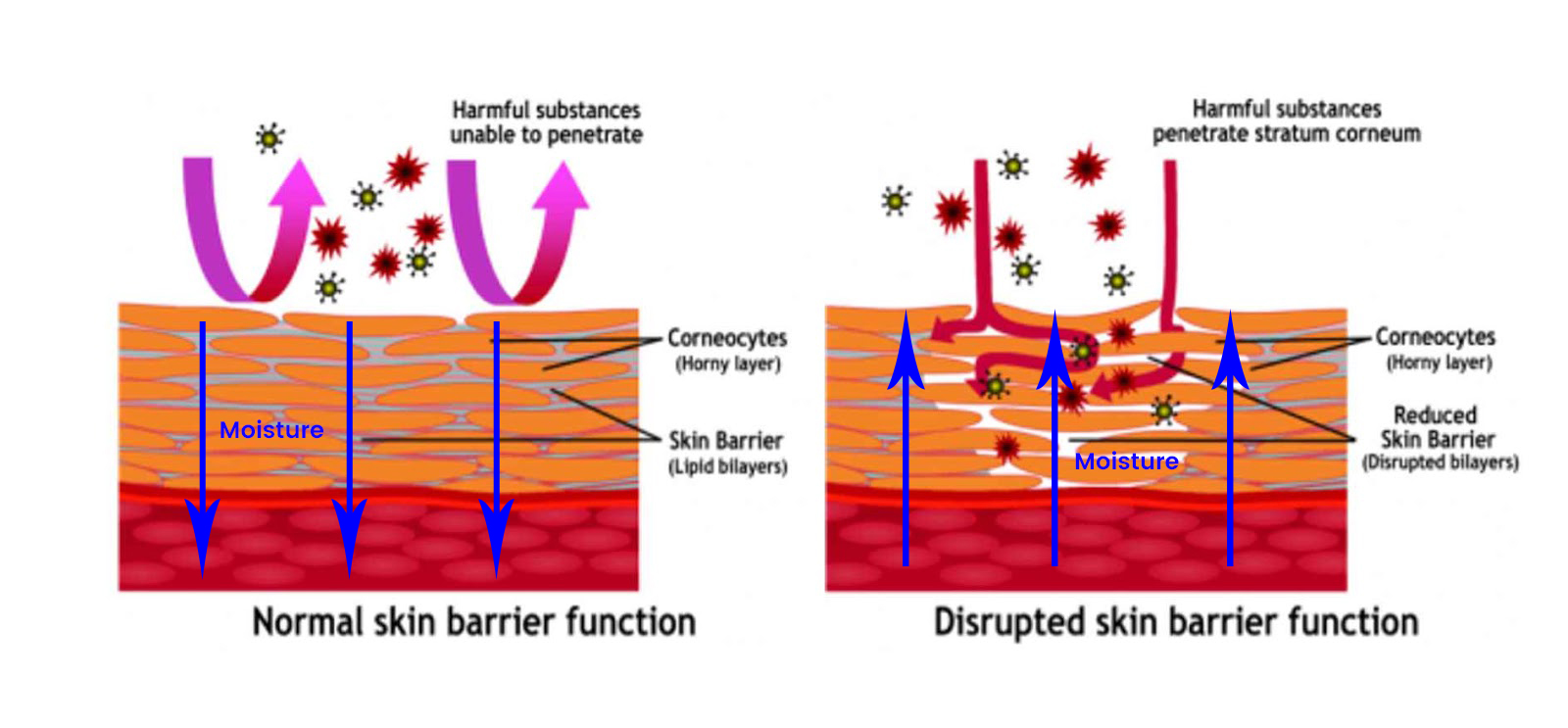Understanding The Consequences Of A Bad Skin Barrier
A bad skin barrier can wreak havoc on your complexion, leading to a myriad of skin issues that can make you feel less than confident. The skin barrier, which is the outermost layer of your skin, plays a crucial role in protecting your body from environmental aggressors and retaining moisture. When this barrier is compromised, it can lead to problems such as dryness, irritation, and increased sensitivity. Understanding what causes a bad skin barrier and how to manage it is essential for achieving healthy, radiant skin.
Many people might not realize that a bad skin barrier is often the root cause of their skin troubles. Factors such as harsh weather, over-exfoliation, and the use of irritating skincare products can all contribute to weakening this vital layer of skin. When the barrier is damaged, it allows moisture to escape and irritants to penetrate the skin more easily, resulting in inflammation and discomfort. Recognizing the signs of a compromised skin barrier is the first step towards restoring it and achieving a more balanced complexion.
In this article, we'll delve into the various aspects of a bad skin barrier, including its causes, symptoms, and effective ways to repair it. By understanding how to properly care for your skin, you can take the necessary steps to restore your skin barrier and maintain a healthy, glowing complexion.
What Are the Signs of a Bad Skin Barrier?
A bad skin barrier can manifest in several noticeable ways. Some common signs include:
- Dryness and flakiness
- Redness and inflammation
- Increased sensitivity to products
- Breakouts and acne
- Itching or burning sensations
What Causes a Bad Skin Barrier?
Understanding the root causes of a bad skin barrier is crucial for prevention. Here are some factors that can lead to a compromised skin barrier:
- Harsh weather conditions, such as extreme heat or cold
- Over-cleansing or using harsh soaps
- Over-exfoliation with physical or chemical exfoliants
- Using skincare products with irritating ingredients
- Lack of hydration and moisture in the skin
Can Diet Affect Your Skin Barrier?
Your diet plays a significant role in the health of your skin barrier. Consuming nutrient-rich foods can help bolster your skin’s defenses. Consider incorporating the following into your diet:
- Omega-3 fatty acids (found in fish and flaxseeds)
- Antioxidant-rich fruits and vegetables (such as berries and leafy greens)
- Hydrating foods (like cucumbers and watermelon)
- Healthy fats (such as avocados and nuts)
How Can You Repair a Bad Skin Barrier?
Repairing a damaged skin barrier involves a combination of good skincare practices and lifestyle changes. Here are some effective tips:
- Use gentle cleansers that do not strip the skin of its natural oils.
- Incorporate hydrating ingredients like hyaluronic acid and glycerin into your skincare routine.
- Limit exfoliation to once or twice a week.
- Choose products with ceramides, which help to reinforce the skin barrier.
- Stay hydrated by drinking plenty of water throughout the day.
What Skincare Ingredients Should You Avoid for a Bad Skin Barrier?
To prevent further damage to your skin barrier, it’s essential to avoid certain ingredients that can be harsh or irritating. Be cautious of:
- Alcohol-based products
- Strong fragrances and dyes
- Excessive acids (like salicylic acid or glycolic acid)
- Retinoids, if used too frequently or without proper hydration
Are There Any Professional Treatments for Bad Skin Barrier?
If your skin barrier is severely compromised, seeking professional treatments can be beneficial. Options include:
- Hydrating facials that focus on nourishing the skin
- Microdermabrasion to gently exfoliate without harsh chemicals
- Chemical peels that are mild and designed to restore skin health
- Prescription-strength moisturizers or ointments from a dermatologist
How Long Does It Take to Repair a Bad Skin Barrier?
The time it takes to repair a bad skin barrier varies from person to person, depending on the severity of the damage and the steps taken to restore it. Generally, you can expect to see improvements within a few weeks to a few months with consistent care and attention.
Conclusion: Embracing Healthy Skin
Understanding and addressing a bad skin barrier is crucial for achieving healthy, vibrant skin. By recognizing the signs and causes, making dietary changes, and following a gentle skincare routine, you can restore your skin barrier and protect your complexion from future damage. Remember, patience is key, and with the right care, you can embrace a healthier, more radiant version of yourself.
Article Recommendations
- Deephotlink
- Katy Perry
- Violet Affleck
- Luke Beasley Partner
- Emilia Clarke Husband
- Blake Griffin Relationships
- Cast Of Shrek
- Telegram Leaks
- Chip Gaines Heart Attack
- Tony Hinchcliffe Parents




